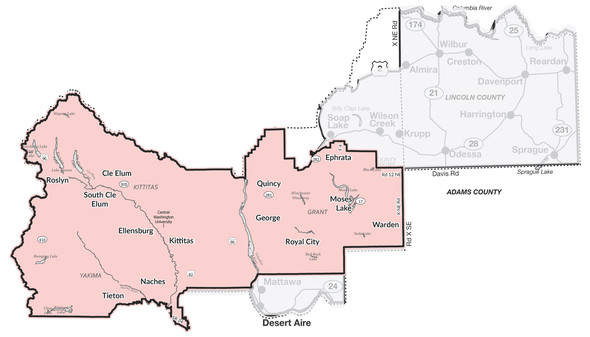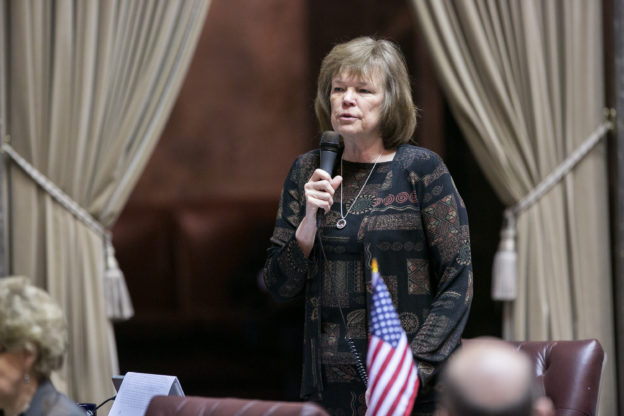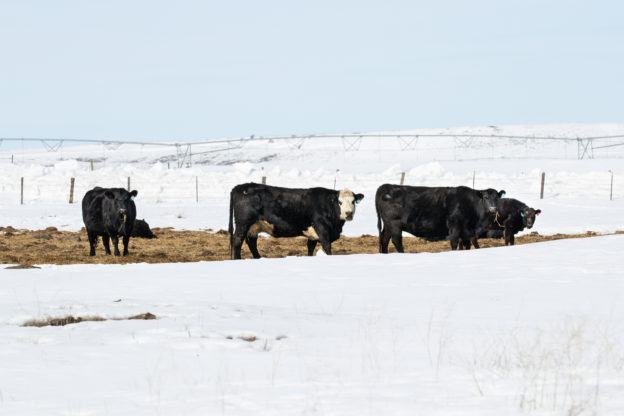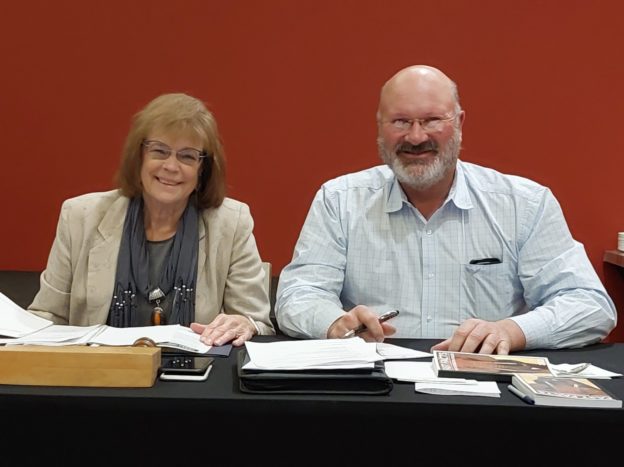Greetings from Olympia,
Things are really starting to pick up here in Olympia as this past Friday we reached a milestone called the fiscal committee cutoff. This is first of a few deadlines that narrows down what legislation may ultimately become law. The work in the Ways and Means Committee, of which I’m a member, will help shape what the state’s next two-year budget will look like. Now, we are spending the day and into the evenings voting on legislation on the Senate floor before next week’s cut-off.
Entering the 2023 session, the state’s revenue has been surprisingly healthy, with a significant surplus. My Senate Republican colleagues and I have been pushing for policies that focus on addressing affordability in our state as it relates to higher costs for energy, food and housing. I firmly believe that the best stewards of taxpayer funds are you, the taxpayer! We don’t need more and bigger centralized state government programs. We need to make good on our current commitments and ensure they are working as intended.
Another area of focus that has been in the news quite a bit is public safety. At the eleventh hour, the House of Representatives was able to approve a watered-down version of a fix to the police pursuit legislation. That is good news because it at least keeps something moving that we can work on.
I want to again extend my gratitude to everyone that joined our joint legislative town hall the other week. It was nice to connect with people back home, answering their questions about what’s going on in the state Legislature and more importantly getting their feedback.
My first bill of the session will help Yakima-area health care
 Barriers exist for out-of-state faculty moving to Washington to teach in various medical fields, including dentistry. Under Warnick’s legislation, accredited dental schools can request temporary licensure for faculty who have accepted employment at the respective school.
Barriers exist for out-of-state faculty moving to Washington to teach in various medical fields, including dentistry. Under Warnick’s legislation, accredited dental schools can request temporary licensure for faculty who have accepted employment at the respective school.
Access to health-care services in rural communities is desperately needed and with shortages across the board, I’m pleased the Senate has approved my proposal to help educate more dental professionals. Allowing this kind of licensure reform will help Pacific Northwest University of Health attract the talent they need to meet the needs of the Yakima area and beyond.
News Roundup
 Below are links to a few news articles about the work I’m doing in Olympia and issues that I’ve commented on from public safety to water access.
Below are links to a few news articles about the work I’m doing in Olympia and issues that I’ve commented on from public safety to water access.
A day in the life of a legislator (Columbia Basin Herald)
Commentary: Keeping our communities safe
Dent, Warnick bills would create assessment process for MLIRD
Sharing inmate information with immigration authorities
How to get involved:
Learn more about the Legislature | https://leg.wa.gov
Call the legislative hotline | 1-800-562-6000
A Citizen’s Guide to Effective Legislative Participation | leg.wa.gov/legislature/Pages/
EffectiveParticipation.aspx
Share your opinion on a bill | app.leg.wa.gov/pbc
Track legislation: Senate floor activity calendar | app.leg.wa.gov/far/Senate/Calendar
Committee schedules | leg.wa.gov/legislature/Pages/CommitteeListing.aspx
Testify remotely: app.leg.wa.gov/csi/Senate




















